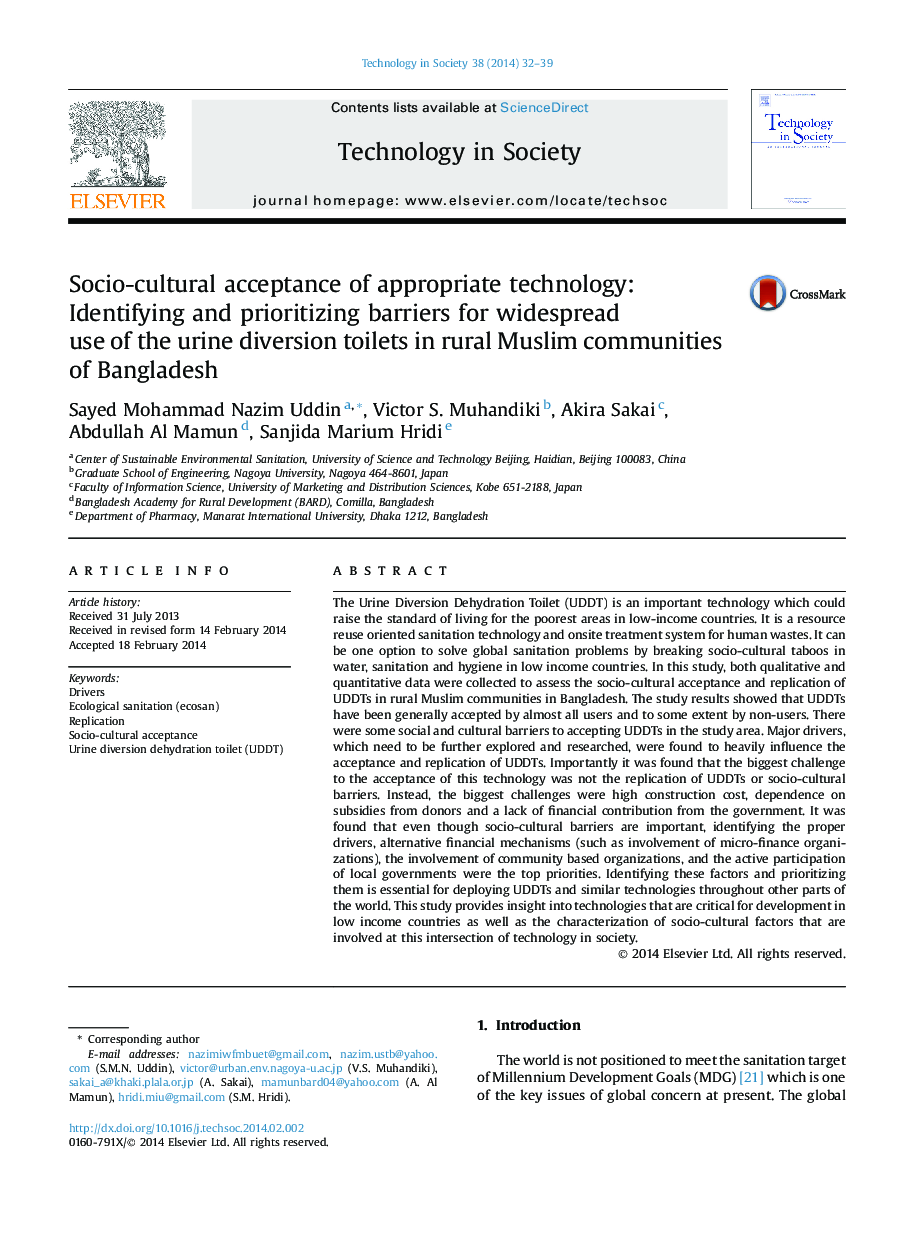| Article ID | Journal | Published Year | Pages | File Type |
|---|---|---|---|---|
| 6851669 | Technology in Society | 2014 | 8 Pages |
Abstract
The Urine Diversion Dehydration Toilet (UDDT) is an important technology which could raise the standard of living for the poorest areas in low-income countries. It is a resource reuse oriented sanitation technology and onsite treatment system for human wastes. It can be one option to solve global sanitation problems by breaking socio-cultural taboos in water, sanitation and hygiene in low income countries. In this study, both qualitative and quantitative data were collected to assess the socio-cultural acceptance and replication of UDDTs in rural Muslim communities in Bangladesh. The study results showed that UDDTs have been generally accepted by almost all users and to some extent by non-users. There were some social and cultural barriers to accepting UDDTs in the study area. Major drivers, which need to be further explored and researched, were found to heavily influence the acceptance and replication of UDDTs. Importantly it was found that the biggest challenge to the acceptance of this technology was not the replication of UDDTs or socio-cultural barriers. Instead, the biggest challenges were high construction cost, dependence on subsidies from donors and a lack of financial contribution from the government. It was found that even though socio-cultural barriers are important, identifying the proper drivers, alternative financial mechanisms (such as involvement of micro-finance organizations), the involvement of community based organizations, and the active participation of local governments were the top priorities. Identifying these factors and prioritizing them is essential for deploying UDDTs and similar technologies throughout other parts of the world. This study provides insight into technologies that are critical for development in low income countries as well as the characterization of socio-cultural factors that are involved at this intersection of technology in society.
Keywords
Related Topics
Social Sciences and Humanities
Business, Management and Accounting
Business and International Management
Authors
Sayed Mohammad Nazim Uddin, Victor S. Muhandiki, Akira Sakai, Abdullah Al Mamun, Sanjida Marium Hridi,
